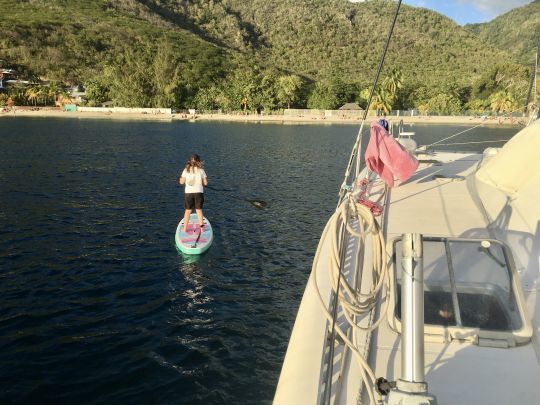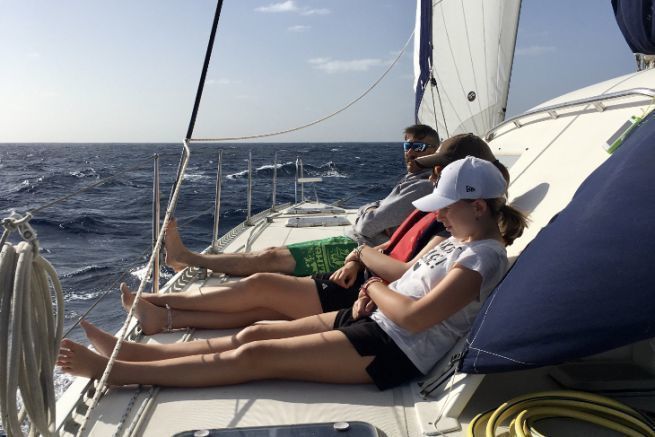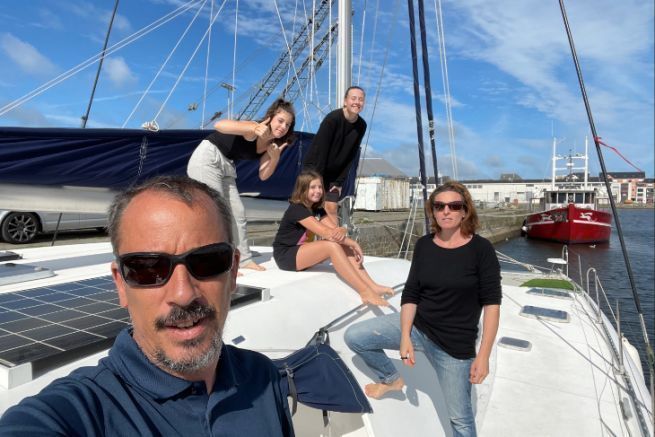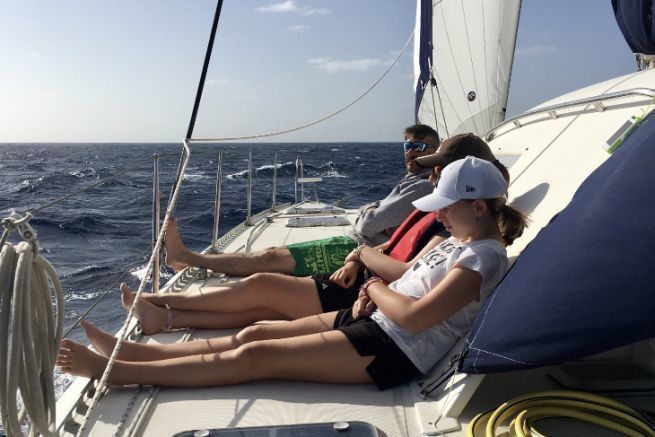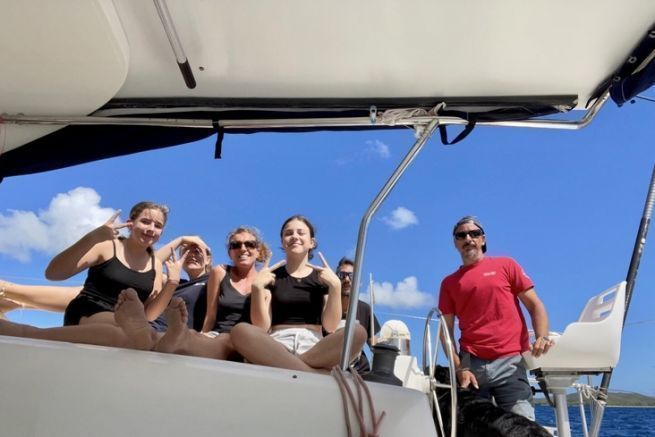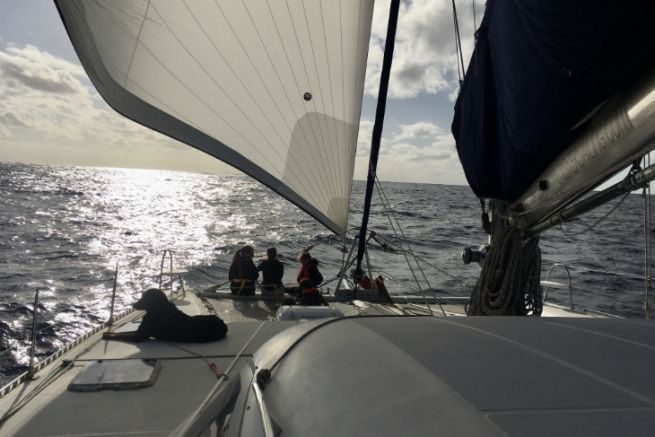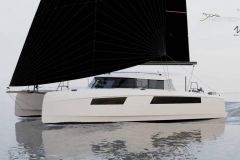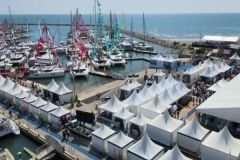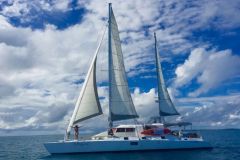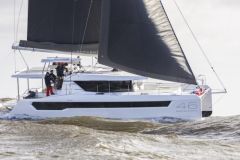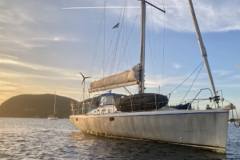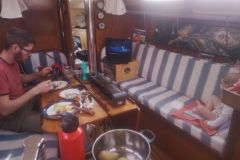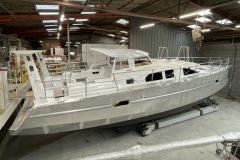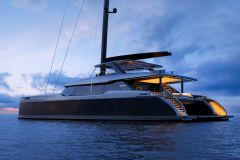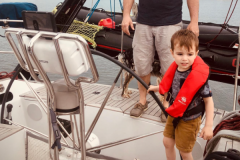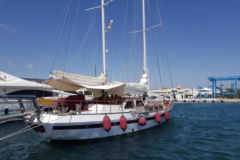Crossing the Bay of Biscay
It is now time to leave Camaret to reach Porto, Portugal and face the famous Bay of Biscay. Once again, the family can count on the support of a crew member they have been introduced to.
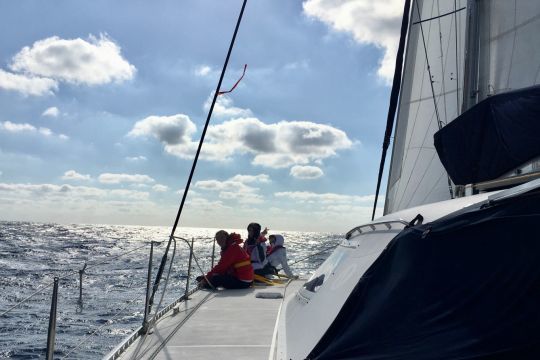
"Initially, we registered on VogAboutMe, but in the end we always found our crew members in a voluntary and friendly way. These people also came for the experience they could get from it. The idea was to take advantage of their support and share our experiences with a give-and-take operation." says Laurent.
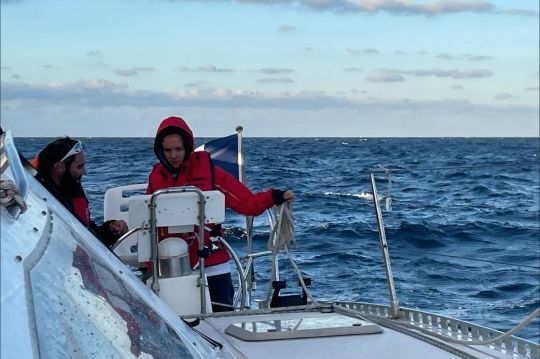
So it was in the company of Morgan that Laurent and his gang of girls set off for a 500-mile sail to Portugal. Once again, the experience is rich in learning.
"Morgan did some teaching at Les Glénans, in Australia. He is a very calm person and he was a very good element to face the Bay of Biscay. I have a very good experience of it. It was a bit rough in the south with gusts to 35 knots and seas with 4 to 5 m of waves. It put us in the bath quickly and it allowed us to take the step! We had only done 2 or 3 sailings in Saint-Malo. The only experience of wind and sailing that I had, was in paragliding in Savoy. We were well accompanied. We learned to manage the night watches, the instruments, the sails, etc. By discussing it later with other travelers, we realized that the good understanding with a crew member that we do not know is not always obvious says Laurent.
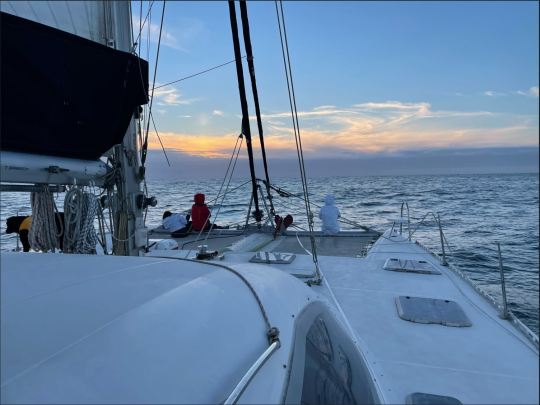
Discovery of the North Atlantic Islands
The family sailed alone between Porto and the south of Portugal, a 161-mile route that they decided to divide into small distances of 30 to 60 miles. At Cascais, a new crew member sailed 500 miles to Madeira, but this "accompaniment" was less beneficial than the first.
"The atmosphere was not very good. We discovered that sometimes life on board can also get out of hand. Our crew member had no catamaran experience and was not used to sailing far from the coast. Our initial goal was also to preserve our boat by not putting too much strain on it, but apparently that wasn't her goal." explains Laurent.
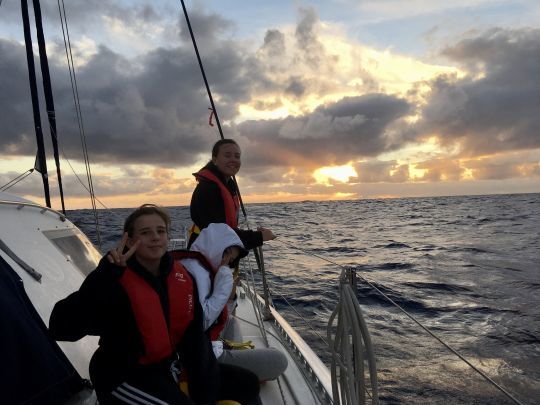
Finally, it is with the family that the new 250 miles navigation towards the Canaries is taking place. After some visits and island hopping: Lanzarote, Tenerife, La Gomera, the family is joined by one of their two friends from Saint-Malo at the beginning of December, before transiting on December 13, 2021.
"In the meantime, we have had a few incidents. We tore a sail at the start of Madeira to reach the Canaries because of an error of appreciation. We had it repaired on the island and got our gennaker back for the transatlantic race" explains Laurent.
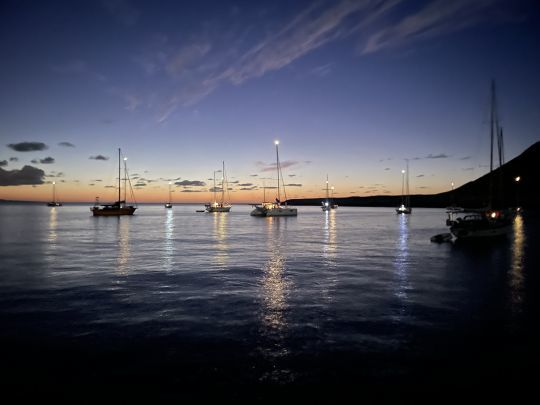
Time for the great crossing
These 23 days of transatlantic racing are punctuated by night watches divided between the 3 adults and the sun, with very favorable conditions, despite a slowdown between the Canary Islands and off Cape Verde.
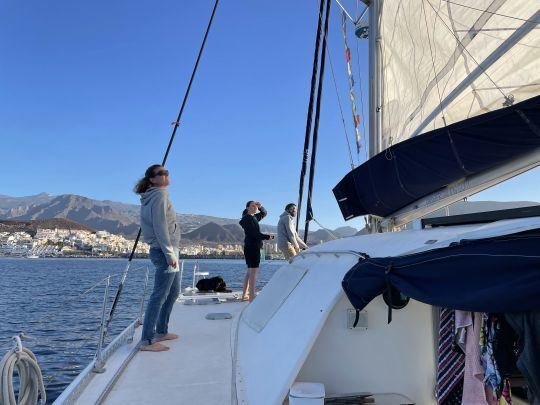
"We had no wind for several days. We lowered the sails, cut the engines and let ourselves be carried along without doing anything. There was no air and the sea was oily" explains Laurent.
The time is punctuated by fishing, stargazing, watching and contemplating the immensity of the sea that surrounds them. As for the girls, they are exempt from school work during the crossing because of the erratic network.
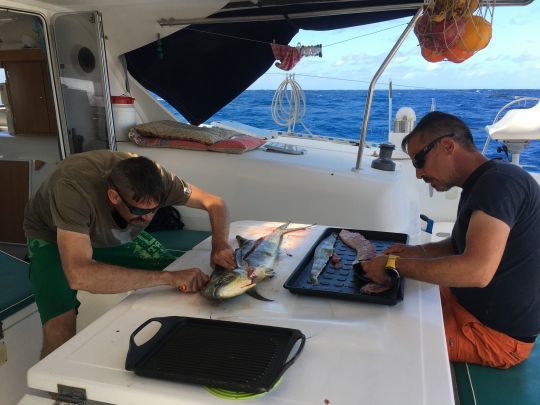
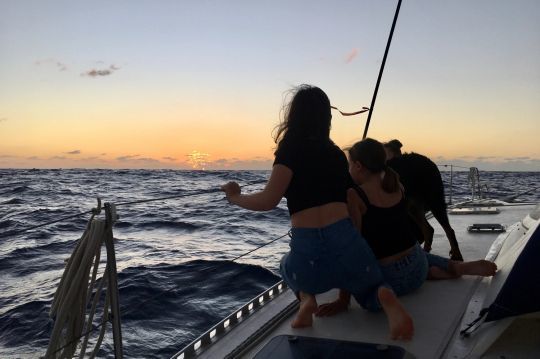
"We passed two cargo ships that contacted us via VHF to ask us if everything was OK and to offer us weather files, but overall we passed few boats. We could not stop in Cape Verde because time was running out, our friend's wife and son had to join us in Martinique. We realize that we can't necessarily follow to the letter the program set before the departure" adds Laurent.
The family suffered some damage : the mainsail traveler and a reefing line broke, but they were easily repaired at sea.
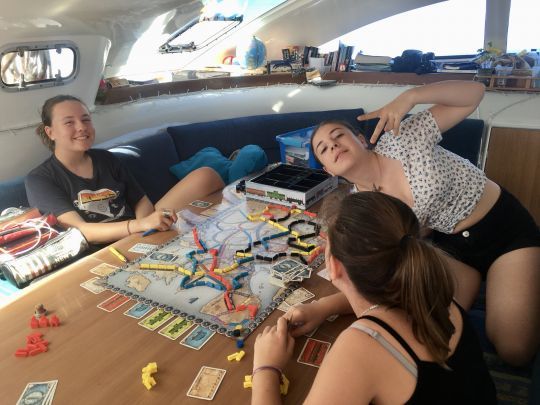
"I was very happy to have this friend on board with us who has a lot of knowledge. It would have been different if the five of us had gone together, even if I manage to do a lot of things. You have to deal with fatigue, navigation, repairs and even though the owner had left a lot of equipment on board - we had a big spare parts store, including everything needed to repair the mainsail traveler or the length of new rope sufficient for the reefing line euros I can't imagine having done this transatlantic without him."
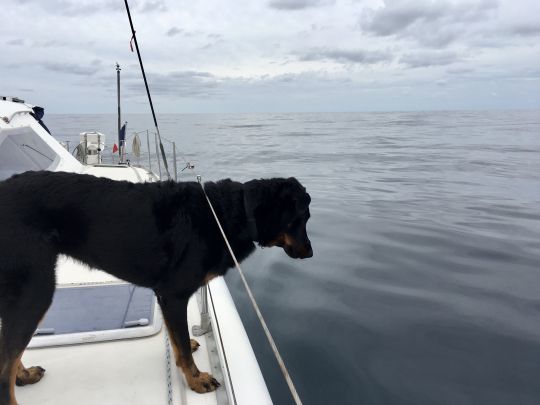
The discovery of the West Indies in autonomy
euros their arrival in Le Marin, it was time for a technical stopover to repair the windvane and the anemometer which had suffered during the transatlantic race. Then the voyage resumes to discover the numerous Caribbean islands: Union, south of the Grenadines, Saint Vincent, Saint Lucia, Martinique, Dominica and Guadeloupe. Before their return, they will also visit Antigua and Barbuda.
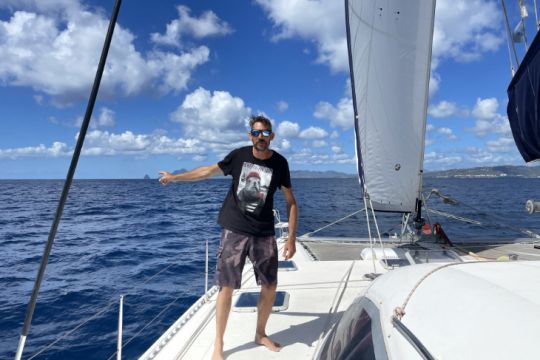
"The island of Dominica is our favorite destination because of the quality of the island and its people, and what we found there. We had been advised against it because of piracy. The local population is very smiling and friendly, we had a very warm welcome. It is exotic because people do not speak French but English and Creole. We encourage people to stop there especially since they suffered a lot from hurricane Maria, which was followed by two years of Covid. We also liked the Grenadines for the change of scenery and the turquoise water. In any case, life is expensive in the Caribbean, but we adapt. We don't have the choice and we don't complain when we think about the local populations. We tried to participate as we can by buying products from the small boats that sell fruits, lobsters."
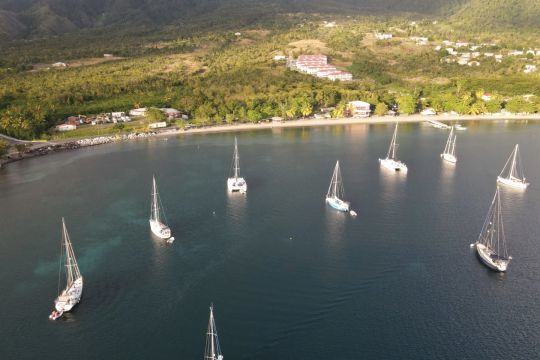
The family is now autonomous and continues to live on their boat and enjoy the charms of the Caribbean islands until the beginning of the hurricane season. In spite of the Covid epidemic, which was certainly less present, they did not suffer from quarantine nor were they slowed down in their plans. They were also able to rely on applications and contacts with other boats to know the different steps to take according to their stopovers.
